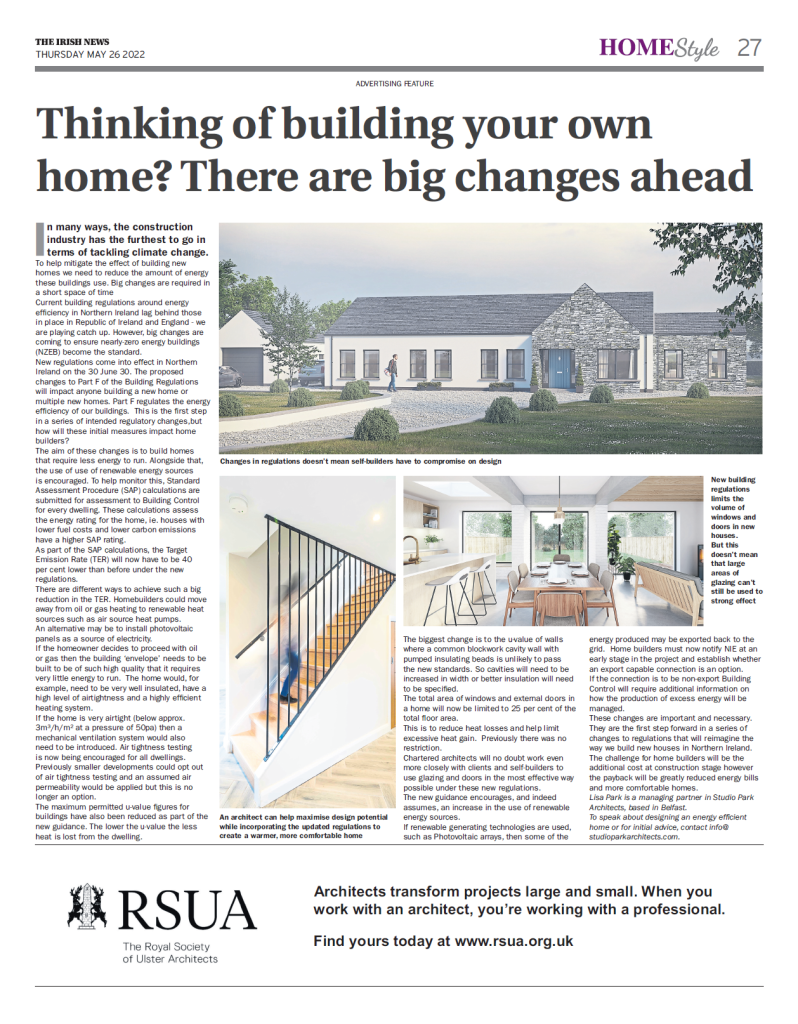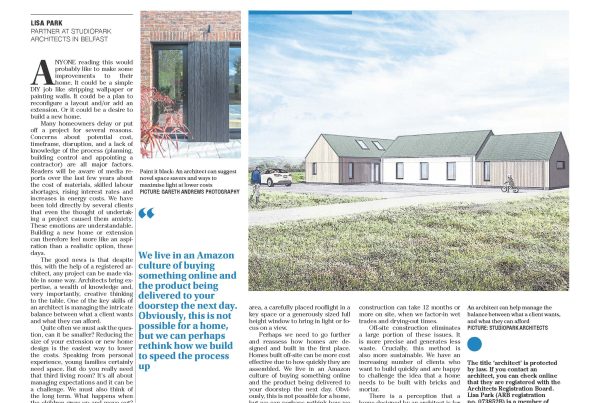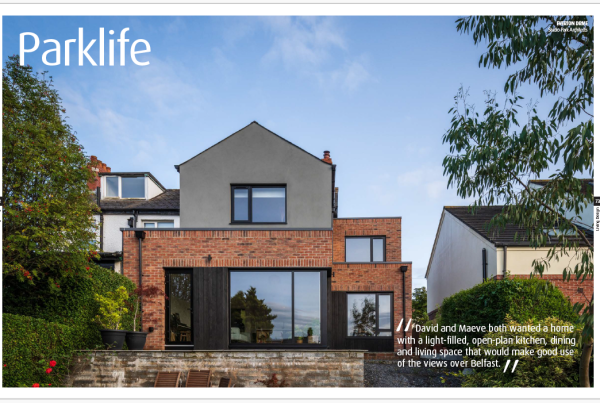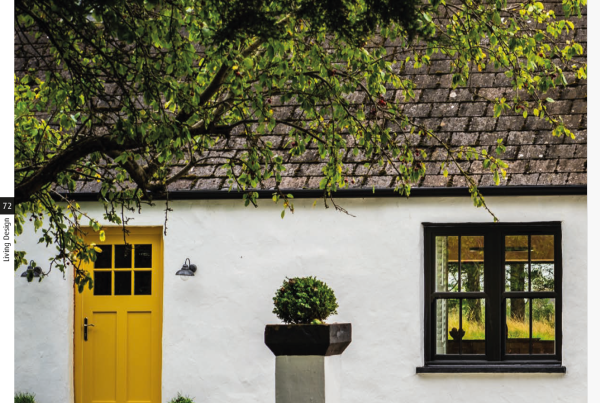Thinking of building your own home? There are big changes ahead.
In many ways, the construction industry has the furthest to go in terms of tackling climate change.
To help mitigate the effect of building new homes we need to reduce the amount of energy these buildings use. Big changes are required in a short space of time.
Current building regulations around energy efficiency in Northern Ireland lag behind those in place in Republic of Ireland and England – we are playing catch up. However, big changes are coming to ensure nearly-zero energy buildings (NZEB) become the standard.
New regulations come into effect in Northern Ireland on the 30 June 30. The proposed changes to Part F of the Building Regulations will impact anyone building a new home or multiple new homes. Part F regulates the energy efficiency of our buildings. This is the first step in a series of intended regulatory changes, but how will these initial measures impact home builders?
The aim of these changes is to build homes that require less energy to run. Alongside that, the use of use of renewable energy sources is encouraged. To help monitor this, Standard Assessment Procedure (SAP) calculations are submitted for assessment to Building Control for every dwelling. These calculations assess the energy rating for the home, i.e. houses with lower fuel costs and lower carbon emissions have a higher SAP rating.
As part of the SAP calculations, the Target Emission Rate (TER) will now have to be 40 per cent lower than before under the new regulations.
There are different ways to achieve such a big reduction in the TER. Homebuilders could move away from oil or gas heating to renewable heat sources such as air source heat pumps. An alternative may be to install photovoltaic panels as a source of electricity.
If the homeowner decides to proceed with oil or gas, then the building ‘envelope’ needs to be built to be of such high quality that it requires very little energy to run. The home would, for example, need to be very well insulated, have a high level of airtightness and a highly efficient heating system.
If the home is very airtight (below approx. 3m³/h/m² at a pressure of 50pa) then a mechanical ventilation system would also need to be introduced. Air tightness testing is now being encouraged for all dwellings. Previously smaller developments could opt out of air tightness testing and an assumed air permeability would be applied but this is no longer an option.
The maximum permitted u-value figures for buildings have also been reduced as part of the new guidance. The lower the u-value the less heat is lost from the dwelling.
The biggest change is to the u-value of walls where a common blockwork cavity wall with pumped insulating beads is unlikely to pass the new standards. So, cavities will need to be increased in width or better insulation will need to be specified.
The total area of windows and external doors in a home will now be limited to 25 per cent of the total floor area.
This is to reduce heat losses and help limit excessive heat gain. Previously there was no restriction.
Chartered architects will no doubt work even more closely with clients and self-builders to use glazing and doors in the most effective way possible under these new regulations. The new guidance encourages, and indeed assumes, an increase in the use of renewable energy sources.
If renewable generating technologies are used, such as Photovoltaic arrays, then some of the energy produced may be exported back to the grid. Home builders must now notify NIE at an early stage in the project and establish whether an export capable connection is an option. If the connection is to be non-export Building Control will require additional information on how the production of excess energy will be managed.
These changes are important and necessary. They are the first step forward in a series of changes to regulations that will reimagine the way we build new houses in Northern Ireland. The challenge for home builders will be the additional cost at construction stage however the payback will be greatly reduced energy bills and more comfortable homes.
Lisa Park is a managing partner in Studio Park Architects, based in Belfast. To speak about designing an energy efficient home or for initial advice, contact info@studioparkarchitects.com









